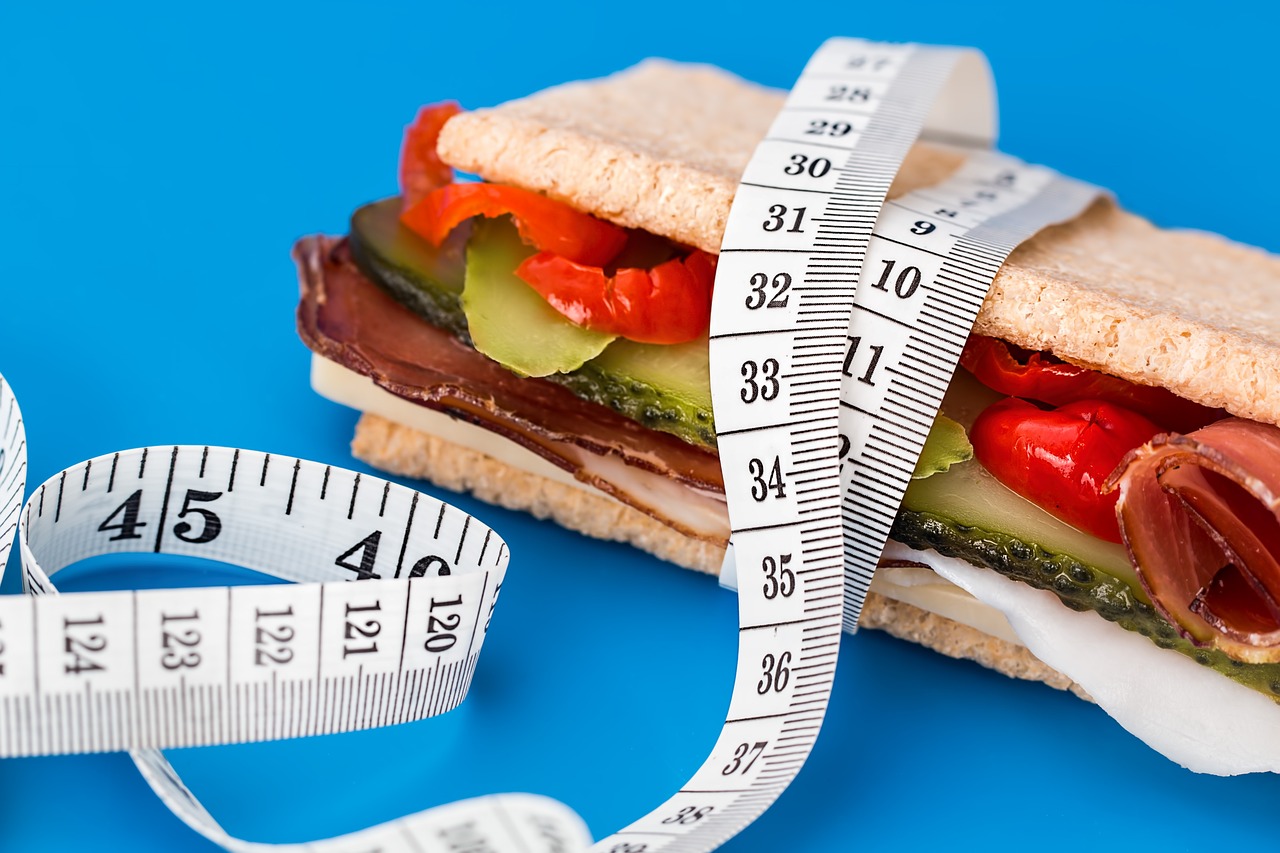Have you made a New Year’s resolution to go on a diet and lose weight? This post may make you question whether you should or not? And what to do instead for lasting results.
Let's ditch the diet resolutions this year! As a registered dietitian and nutrition researcher, I urge you to rethink the weight-loss trap. This ~$100+ billion and growing industry (pun escaped me there!) thrives on our deep-seated belief in diets and their supposed benefits. It's no wonder my mom recently suggested my sister go on a "diet" because she was concerned about her weight. I understand the sentiment, but in 2024, shouldn't we know better?
Yes, portion sizes matter, so beware of restaurant supersizing! Unlimited veggies are promoted by weight loss companies for a reason (not the sauces, though!). However, food can be comforting and addictive. Like that perfectly glazed, hot donut! I get it. I have a wheat-intolerance, yet I can inhale those precious balls of dough like a vacuum when given the chance. College days even saw me washing down cold, deep-dish, meat-lovers pan pizza with extra cheese and a cola for breakfast (shudder!). For the record, no longer! It just tasted so good. No wonder my cholesterol soared in my 20s.
It took a serious illness to wake me up—it might not be that dramatic for you, but I hear your struggles. If you are only looking to wear that outfit again or YOLO is your motto, then peace be with you my friend and feel free to skip the rest of this. What I’m promoting isn't about deprivation, it's about prioritizing well-being. If you truly want a better, fitter you, let's reframe the whole weight-loss narrative.
Thanks for sticking with me so far, and let’s consider two questions:
1.) How long did the weight loss last with your last diet?
2.) Will the temporary weight loss you get be worth the torture?
If “less than 2 years” and “not sure” are your answers, then why are you in this rodeo again?
Marketing, societal pressures, even ‘helpful’ friends and family, may have led you to believe that it’s all your fault. You just need to step away from that fork, be more active, eat less carbs, be more mindful of calories, whatever. But the truth is more complicated than that. Often much more than meets the eye on the weight loss roller coaster.
Science shows that your body can reach a set body weight and it will fight to maintain it after you’ve lost the weight. You can potentially gain more weight than you lost while eating fewer calories. And even if you have done everything ‘right’ there are other reasons, including prenatal programming, hormones gone haywire, and stress that may be affecting your weight beyond your control. Weight loss drugs like Wegovy and Zepbound have shown promise with varying degrees of weight loss, as have bariatric weight-loss procedures, but they are not panaceas and do come with potential side effects, some serious, and significant costs.
Here’s one last question, perhaps the most important:
3.) What is not being in optimal health costing you?
It may literally be costing you loss of energy, increased illness, loss of mobility, or even your future with loved ones.
Numbers like your total, LDL, and HDL cholesterol, hemoglobin A1c, blood pressure, and liver & kidney function parameters are more telling windows to your health than looking at the scale everyday. And the constant focus on achieving the ideal weight can take a behavioral health toll as well. Find people who can support you - positively.
90% of Americans fall short of the U.S. Dietary Recommendations, which include 3-5+ daily servings of fruits and vegetables (think half a cup cooked green beans, one medium sized apple, or one cup of a leafy salad). Whole grains, legumes, and nuts are often missing as well, while added sugar, salt, and saturated fats are plentiful (hello, pizza, fried foods, and cookies!).
Let’s reset our relationship with real, nourishing foods and skip the “diets.” Focus on adding, not restricting. Find fruits and veggies you love, and aim for at least one serving per meal to reach 3+ daily. Frozen, canned, or cooked all count! It may take a while, but consistently striving to do a little better can pay big dividends. Even small changes will make you a healthier eater than most.
And if you want to know more, consider a basic nutrition class. Everyone should get at least some nutrition education. Or, consult a registered dietitian for personalized advice. Remember, they're the food and nutrition experts!
References for stats on the weight loss industry (accessed January 1, 2024)
[1] https://www.businesswire.com/news/home/20230505005166/en/United-States-Weight-Loss-Diet-Control-Market-Report-2023-The-75-Billion-Market-Grew-Nearly-15-in-2022-from-the-Depressed-Level-of-2020---ResearchAndMarkets.com
[2]https://finance.yahoo.com/news/latest-u-weight-loss-market-170000586.html?guccounter=1&guce_referrer=aHR0cHM6Ly93d3cuZ29vZ2xlLmNvbS8&guce_referrer_sig=AQAAAD-EWqvEYPh9aZIhWiPcKCdjJHBQ3Gwg_A0ow88JXR_pHwrdUKnLCpTnIPMRgrvcLM0WuKgmCgkG3kUBMn86E_-dPZwHTQAD6f_jbbWAQbD8jf0ne87XIQQH53tjHfyhMdxeyro3sxW7Ih3vlk_oxC_-szPcXsRJ9rldu5bVVcu6
